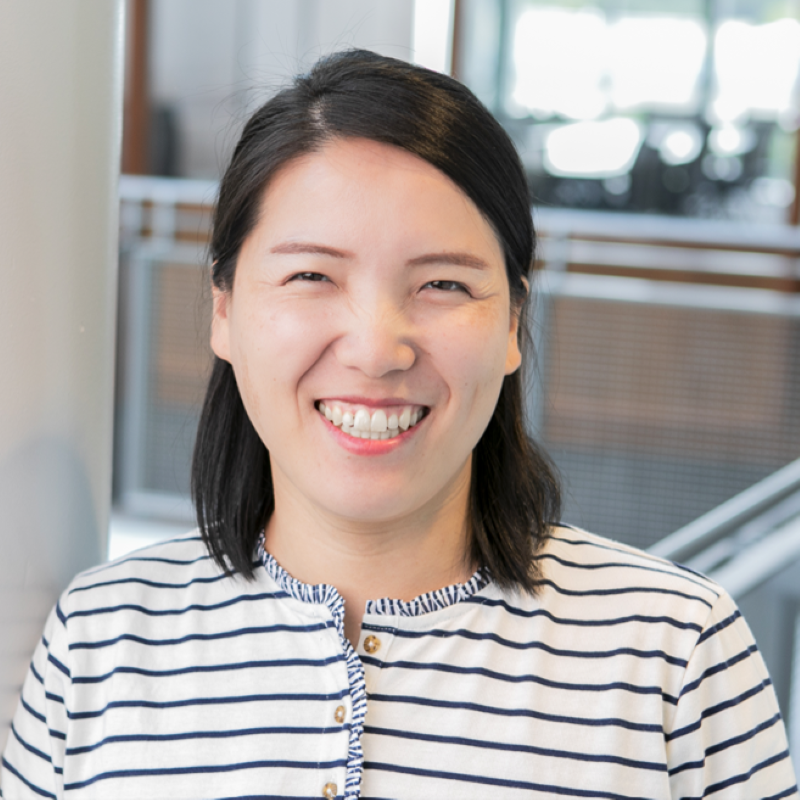
Sanghee Kang
Assistant Professor of Second Language Acquisition, English as a Second Language and Korean Studies
Co-coordinator of Korean Studies program
Department of Languages, Cultures & Applied Linguistics
4980 Margaret Morrison St
Posner Hall 341
Pittsburgh, PA 15213
Bio
Sanghee Kang earned her Ph.D. in Applied Linguistics from Georgia State University, where her dissertation focused on the role of chatbot-based interaction and learner characteristics in the alignment-driven learning of second language grammar and pragmatics. Her research has continued to explore the role of generative AI in second language learning, with a focus on AI-generated feedback and collaborative writing. She is excited to contribute my expertise in technology-oriented second language acquisition to the CMU community and to continue building collaborative relationships with colleagues while mentoring students in an innovative academic setting.
Dr. Kang's research interests also include task-based language teaching and digital multimodal composition, with a focus on both English and Korean as target languages. She has made significant contributions to Korean Studies, particularly in the area of Korean language acquisition among university students. She has also collaborated on research projects that led to the development of a research-informed, task-supported Korean language curriculum and have conducted teacher training workshops on instructional task design for Korean language learners.
Additionally, Dr. Kang is the co-author of the textbook Learning Korean through Tasks: High Beginners to Intermediate, which integrates recent findings in second language acquisition and task-based language teaching into practical pedagogic tasks for learners.
Within LCAL, Dr. Kang serves as co-coordinator of the Korean Studies program.
Education
Ph.D., Applied Linguistics, Georgia State University
M.A., Applied Linguistics, Georgia State University
B.A., Seoul National University
Areas of Interest
- Korean language learning
- Task-based language teaching
- Technology-oriented second language acquisition
- Digital multimodal composition
- Teacher training and curriculum development
Courses Taught
-
- 82-251 Intermediate Korean I
- 82-252 Intermediate Korean II
- 82-283 Language Diversity and Cultural Identity
Selected Awards and Honors
- GAITAR Fellowship, Eberly Center, Carnegie Mellon University, 2025-2026
- Korean Studies Grant, The Academy of Korean Studies, 2025
- Falk Research Grant, Carnegie Mellon University, 2024
Selected Publications
Kang, S., & Kim, Y. (2024). Examining the quality of mobile-assisted, video-making task
outcomes: The role of proficiency, narrative ability, digital literacy, and motivation. Language Teaching Research, 28(6), 2326-2353. https://doi.org/10.1177/13621688211047984
Kang, S., Shin, Y. K., & Yoo, I. W. (2024). Using lexical bundles to teach prepositions to Korean EFL students. Journal of Second Language Studies, 7(1), 75–98. https://doi.org/10.1075/jsls.00022.kan
Kang, S., & Kim, Y. (2023). EFL adolescent learners’ perceptions of digital multimodal composing tasks and task outcomes: A longitudinal study. International Journal of Applied Linguistics, 33(2), 340–361. https://doi.org/10.1111/ijal.12473
Kim, Y., Kang, S., Nam, Y., & Skalicky, S. (2022). Peer interaction, writing proficiency, and the quality of Collaborative Digital Multimodal Composing Task: Comparing Guided and unguided planning. System, 106, 102722. https://doi.org/10.1016/j.system.2022.102722
Kim, Y., Kang, S., Yun, H., Kim, B., & Choi, B. (2021). The role of task repetition in a Korean as a foreign language classroom: Writing quality, attention to form, and learning of Korean grammar. Foreign Language Annals, 53(4), 827–849. https://doi.org/10.1111/flan.12501
